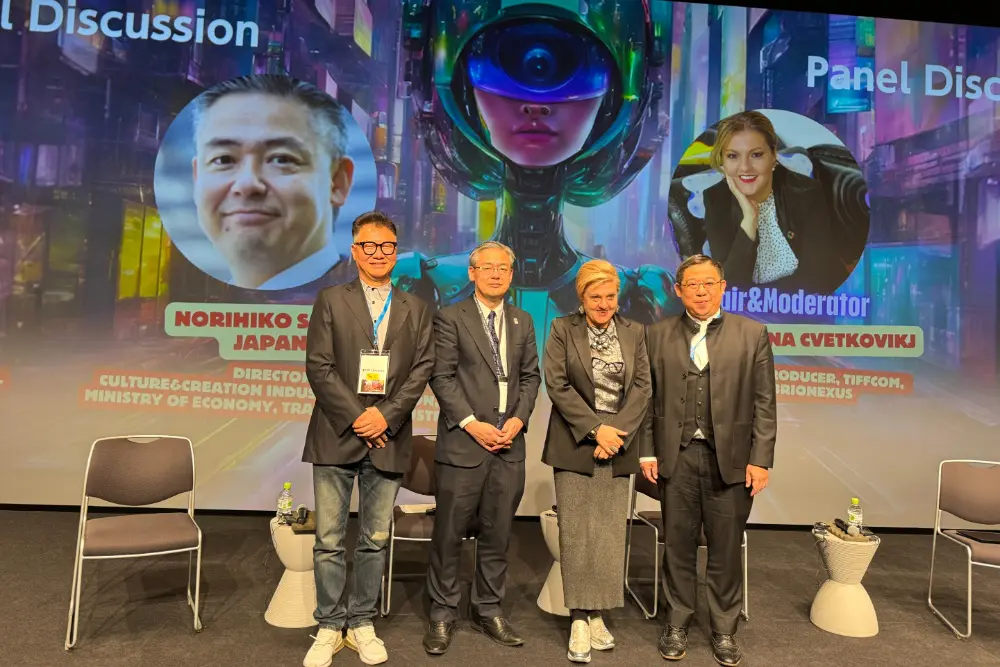Unleashing AI in film production: A new era at TIFFCOM
The evolving landscape of film production
At the recent gathering of film and tech leaders during TIFFCOM, aligned with the prestigious Tokyo International Film Festival, an electrifying discussion took place regarding the revolutionary impact of generative AI on film production. The leaders made it clear: AI is not just a future prospect but a present reality, dramatically reducing costs and uncovering new realms of investment.
The case of “Cinque Terra”
One of the most striking testimonies came from the AI director of Metavision Co. He shared an astonishing example of how AI tools enabled him to slash a $4.1 million production budget to just $400,000 for the film Cinque Terra. Set across five international locations, this was no small feat.
“I made it in my computer and by myself. I made music, I made sound design, I did everything,” he explained, emphasizing how AI tools replaced traditional location shooting costs without compromising on production quality.
Investment opportunities unlocked
The financial implications of such AI efficiencies are profound. The chair of N Prime Partners Capital in Singapore remarked that lower costs and quicker times to market effectively reduce investment risks, leading to higher investments. He highlighted how individual investors in Singapore are now contributing $5,000 to $15,000 to film projects—figures unprecedented in traditional film financing.
“When you lower cost and time to market, you’re technically lowering the risk. And in the investment world, when you lower the risk, the amount of investment goes up,” he elaborated.
Yet, he also cautioned that the rapidly evolving AI landscape poses unique challenges. Due diligence remains critical, particularly in assessing competitive technologies that may outperform current projects.
Government support for AI in content creation
The Japanese government is also stepping up to foster AI adoption in content creation. The Ministry of Economy, Trade and Industry has launched the GENIAC (Generative AI Accelerator Challenge) program and is developing guidelines for AI use in content production. This initiative aims to bridge collaboration between animation companies and cutting-edge technology firms.
“We are trying to promote collaboration between animation companies and cutting-edge technology companies,” stated a government official.
Breaking down barriers in international co-production
The advent of cloud-based AI tools is also dissolving the barriers traditionally faced in international co-productions. One South Korean film director and AI seminar host pointed out how these tools enable real-time collaboration across borders, starkly contrasting with the slow adoption of remote collaboration in traditional filmmaking.
“We can communicate anywhere, everywhere, anytime,” he stated, revealing a new era of global connectivity in film production.
Balancing innovation with tradition
The discussion, moderated by an executive producer at TIFFCOM, underscored that while innovation is crucial, there is a need to balance it with the risks to artists and traditional filmmaking processes. As the industry navigates this brave new world, it must ensure that the introduction of AI does not overshadow the irreplaceable value that human creativity brings to art.
Embracing the future
Generative AI is reshaping the film industry, offering dramatic reductions in production costs and ushering in new investment opportunities. As cloud-based tools enable seamless international collaborations and governments provide crucial support, the industry must continue to innovate while honoring traditional creative processes.
Feel inspired by this transformative journey and stay tuned for more insights into the future of film and technology. Share this story and elevate the conversation on social media!

 Italian
Italian







